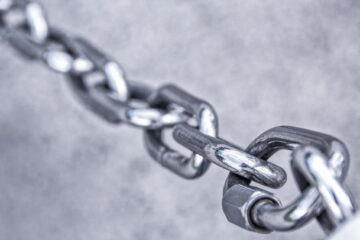![]()
Introduction:
The Advocates Act, 1961 came into being with the primary purpose of implementing the recommendations of the All India Bar Committee, endorsed by the fourteenth Report of the Law Commission in 1955. The objective of the act was to amend and consolidate the laws concerning legal practitioners in addition to providing for the establishment of State Bar Councils and All India Bar Council. Admission, practice, ethics, privileges, discipline, regulation and improvement of the profession. Along with law reforms is now in the profession’s control itself and the credit goes to the Advocates Act, 1961.
The Advocates Act, 1961 acts as a quasi-judicial body, when it comes to imposing a penalty for professional misbehaviour by an advocate. The only misbehaviour that does not come under the ambit of Bar Council of India is contempt of Court. The only organization that can be approached for misconduct by an advocate is the Bar Council, which was constitute under the Act. The Act has been criticise for its power to punish professional and other forms of misconduct.
Section 35 of the Advocates Act, 1961
Section 35 of the Advocates Act, 1961 lays down what would constitute professional misconduct of lawyers and advocates practicing in India. It reads as-
When a lawyer or advocate is guilty of professional misbehaviour; a disciplinary committee shall be refer to the case. The disciplinary committee will decide the date of hearing and issue a notice of show cause to the Advocate and the Advocate General of the State. After hearing both the parties, the disciplinary committee of the State Bar Council may give the following directions:
- Dismissal of the complaint, or in the case when the proceedings were initiate by the State Bar Council. It give the direction for the proceedings to be file;
- Reprimand the advocate;
- Issue the suspension of the advocate from practice for a period that the disciplinary committee deems appropriate;
- Direct that the name of the advocate in question is removed from the state roll of advocates.[1]
What becomes a question of grave concern is that even though this section deals exclusively with misconduct. The act has failed to define the term ‘misconduct’. Instead, it has coined the terms professional and other forms of misconduct. It has left the definition to the Bar Councils and the Supreme Court to widen its scope, as and when required.
Secondly, it denies the principle of natural justice to an ordinary litigant who is chagrined with the misconduct of the advocate. As the body of their association i.e. Bar council, which is deciding the case in which their own member is the respondent. This is against the decree of the natural law of Nemo Judex in causa sua. Which states that no man can be the judge in his own case. The ordinary man, hence, has to approach the appropriate fora constituted under Consumer Protection Act, 1986. It is to get any pecuniary relief due to the loss caused by such misconduct if it fits under deficiency of service.
Section 49 of the Advocates Act, 1961
According to Section 49 of the Advocates Act, the Bar Council of India is authorize to make rules and standards of professional misconduct. Under this provision, no person possesses the right to advertise or solicit as it will be against the advocate’s code of ethics. In addition to that, he/she is not permit to advertise through various circulars, personal communication or interviews. He/she is not entitle to ask for training fees or to use the respective name/service for purposes that are not authorize.
In these exemplary times, and considering the social and economic situation; with the courts closed, getting three meals a day has become difficult for many. This provision becomes a clear violation of Article 19(1)(g)- right to practice trade or profession, and also freedom of speech and expression enumerated in Article 19(1) (a). [2]
Advocate Chanderjeet Chanderpal has filed a petition in the Supreme Court, asking it to issue directions to the Bar Council of India to enable lawyers the use of advertisements as a medium to advertise their work. In addition to that, allow them to take up other sources of income to earn their bread during this time. The petitioner states that this unprecedented situation has led to advocates losing their only source of income and as a consequence facing a dire financial crisis.
In addition to that, the petitioner has explained that one-time financial grants and similar schemes are below par measures to alleviate the plight of so many lawyers who are financially strained and there is an extreme need for a permanent solution.[3]
Conclusion
Considering the issues raised above, an amendment in these two sections is long overdue. Advocacy is regard as a noble profession and advocates are expect to maintain a proper code of conduct and professionalism throughout. Having said that, the same amount of scrutiny should be put to ensure their welfare in these exceptional times.
References:
[1] Sylvine. (2019, October 3). Professional misconduct under the advocates act, 1961. iPleaders. https://blog.ipleaders.in/professional-misconduct-advocates-act-1961/
[2] Legal Service India. (n.d.). Professional misconduct of lawyers in India. Legal Services India – Laws in India, Supreme court judgments, lawyers in India. https://www.legalservicesindia.com/article/1665/Professional-misconduct-of-lawyers-in-india.html
[3] Mahajan, S. (2020, June 30). [COVID-19 crisis] advocates dying due to closure of courts: Plea in SC seeks permission for lawyers to advertise, be employed on retainers. Bar and Bench – Indian Legal news. https://www.barandbench.com/news/litigation/plea-in-sc-seeks-permission-for-lawyers-to-advertise-be-employed-on-retainers



0 Comments